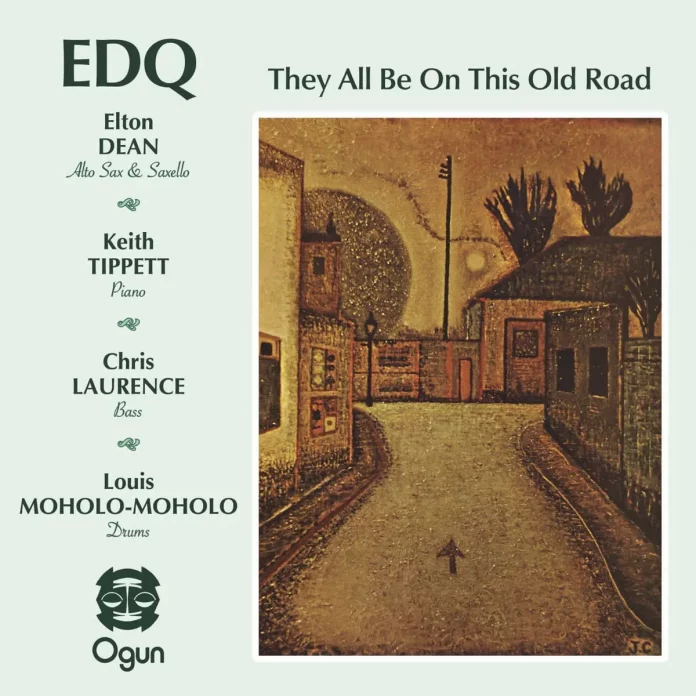… EDQ standing for the Elton Dean Quartet. Formerly, Dean had been a member of Tippett’s classic sextet, and Moholo-Moholo notably powered the Chris McGregor Group. These were two of the most exciting bands of the late 60s. Dean had also been in Soft Machine during the period when that group evolved from art-rock to jazz-rock fusion, but in addition he led or participated in projects which ventured into more experimental areas. His versatility is evident on this session. EDQ also benefits from the inclusion of Laurence, who was much in demand in both jazz and classical fields.
The album is subtitled “The Seven Dials Concert” and brackets the contents of the original LP with previously unreleased performances of Naima, Here’s That Rainy Day, Attic and Echoes. The Seven Dials in London’s Shelton Street was one of the venues where the London Jazz Centre Society put on gigs by the cream of musicians from the British scene of the time, including several members of the South African diaspora, represented here by Moholo-Moholo. I used to attend these gigs when I could and wish I’d been at this one. If this was a capsule review I’d just say “Superb. Buy it” but I suppose I should elaborate.
As Matthew Wright observes in the sleeve-note (Wright had been manager of the Seven Dials Jazz Club) the influence of John Coltrane is often evident, and not just from his later free-jazz period: Trane’s beautiful Naima is one of the rather unexpected ballad-based performances alongside Nancy, a tune that Trane favoured. Mostly, though, the music is intense and complex, with some technically remarkable playing all-round: particularly compelling is a device that Tippett introduces early on in Edeepub, transforming the piano into some sort of titanic gong. The music is at its densest when Laurence’s bass introduces a long prelude to a warm yet slightly acerbic Rainy Day. Later, on a sprightly Easy Living, Dean’s saxello evokes Trane’s standard soprano sax.
In the wilder passages Tippett’s hands seem to suggest two independent players, who nonetheless always co-operate and cohere and on Naima especially he demonstrates that he is equally capable of elegant, empathetic, relatively conventional accompaniment as well as contributing a beautiful solo. His work on Dean’s Dede-Bup-Bup (which at least starts out as free-wheeling neo-hard-bop) is a particular delight, and the whole concert reminds us what a powerful, versatile talent we lost with his death in June 2020.
These four players are all significant figures in their own right but they come together as a well-integrated unit where no-one tries to cut anyone else and even in the freest passages there is a strong sense of co-operation and mutual support.
Discography
Edeeupub; Here’s That Rainy Day; Naima; Dede-Bup-Bup; Nancy (With the Laughing Face); Easy Living; Overdoing It; Not Too Much; Attic; Echoes (79.46)
Elton Dean (as, slo); Keith Tippet (p); Chris Laurence (b); Louis Moholo-Moholo (d). Seven Dials Club, London, 18 November 1976.
Ogun OGCD 048















